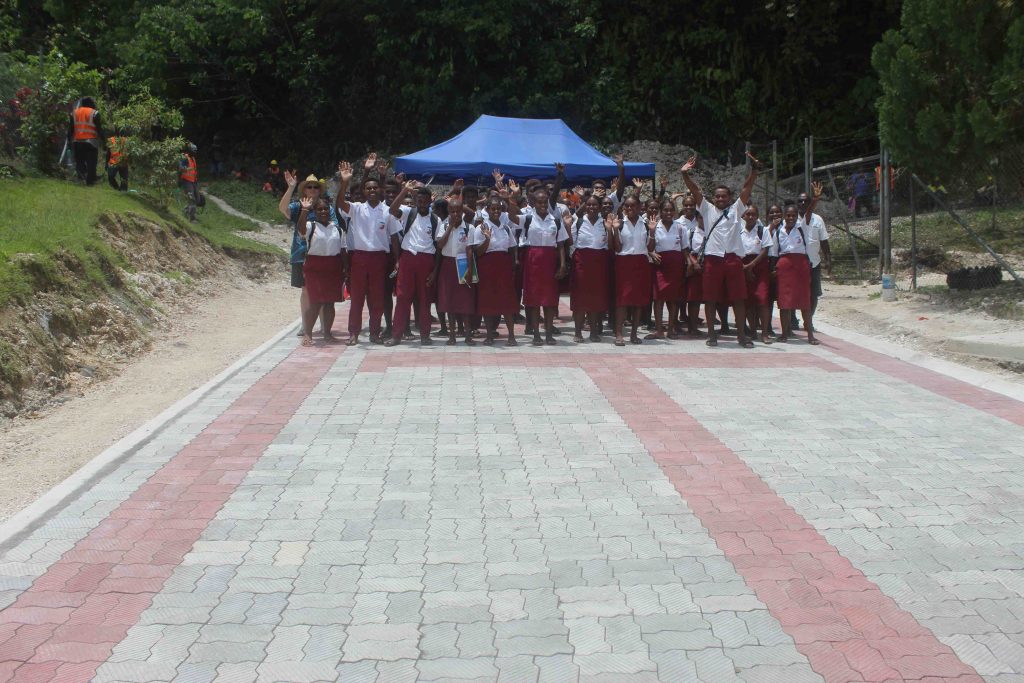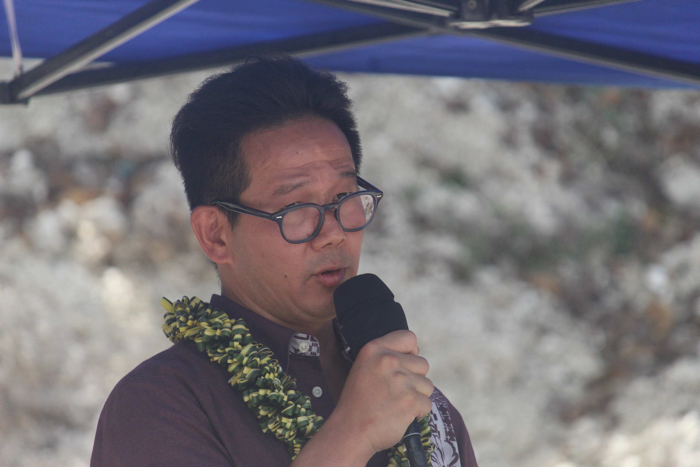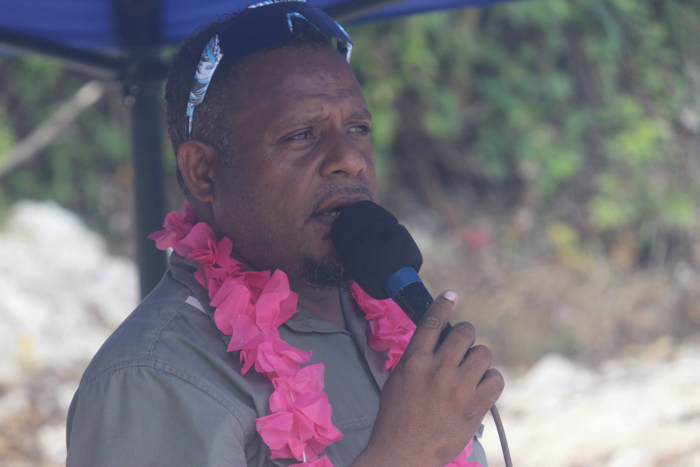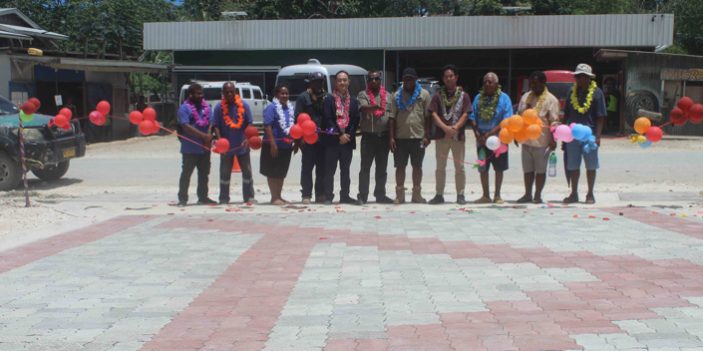JAPAN, through the Japan International Cooperation Agency (JICA) in Solomon Islands, officially handed over the completed pilot Interlocking Block Pavement (IBP) project in Auki, Malaita Province on Friday.
The IBP project, performed on the stretch of road in front of the Auki Community High School in the provincial capital Auki, marks JICA’s first IBP initiative in the province, is funded entirely by JICA.
The handing-over ceremony was attended by officials from the Malaita Provincial Government, representatives from the Ministry of Infrastructure and Development (MID), JICA officials in Honiara, Auki Community High School staff and students and representatives from the contracting company, Islands Engineer Company.
The construction of the project took 58 working days to complete.

JICA’s Project Formulation Advisor Kengo Hoshina explained that IBP is a paving method that involves the interlocking of concrete blocks, which is similar to combined bricks.
“Historically, roads were paved using natural stones. IBP has been introduced as an alternative to cobblestone paving and was originally intended for roadways,” Mr Hoshina said.
This method is employed globally in parks, schools, shopping malls, gardens and even on heavily trafficked roads.
Mr Hoshina said in Solomon Islands, IBP was introduced as a pilot project under the Greater Honiara Transport Master Plan Study supported by JICA.
He said a 100-meter section in central Honiara was already paved using this method and this demonstrates its potential to enhance road conditions and improve community life.
The project was initiated by the Ministry of Infrastructure and Development with the objective of establishing IBP as a standard pavement method for roads across Solomon Islands.

Mr Hoshina said the distinctive characteristics of IBP are evident in its remarkable appearance as road surface consists of tightly aligned blocks filled with sand, creating a durable and visually appealing pavement.
He said eith various shapes and colors available, IBP offers a beautiful enhancement to towns and parks.
Mr Hoshina said, the surface layer of IBP can be constructed manually, thus providing employment opportunities to locals as well as skills for the betterment of their communities.
The materials for block production are locally accessible, with the exception of cement, making road repair and maintenance simpler, as damaged pieces can be easily replaced.
Mr Hoshina said this project aligns with JICA’s long-term vision of building resilient infrastructures that meets today’s needs, while ensuring sustainability and empowerment for future Solomon Islands generations.
“As always, JICA remains committed to partnering with the Solomon Islands in sustainable development and we are proud to see tangible results from that partnership today.
“I trust that the community will take pride in this achievement and work together to maintain it for future generations. I would like to express our sincere gratitude to the school and the community for their support and cooperation throughout this project,” he added.

Chief Civil Engineer of the MID, Lawrence Wawane also expressed gratitude to JICA for funding the successful IBP project in Malaita Province.
He acknowledged the completion of the project and thanked the contractor for their excellent work.
Auki Community High School Principal Andrew Fuoto’o expressed appreciation on behalf of the school and its students for the development of the IBP in front of the school.
“It is a great gift for the school and will benefit both students and the community. We promise to take good care of this infrastructure,” he assured.
By SOLOMON LOFANA
Solomon Star, Auki









